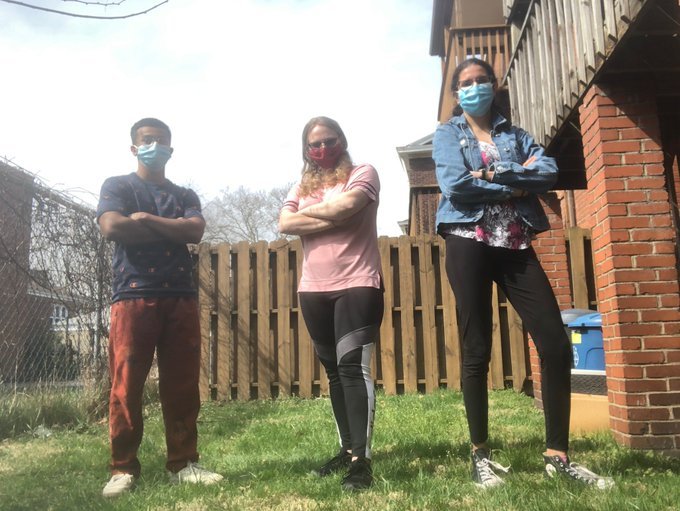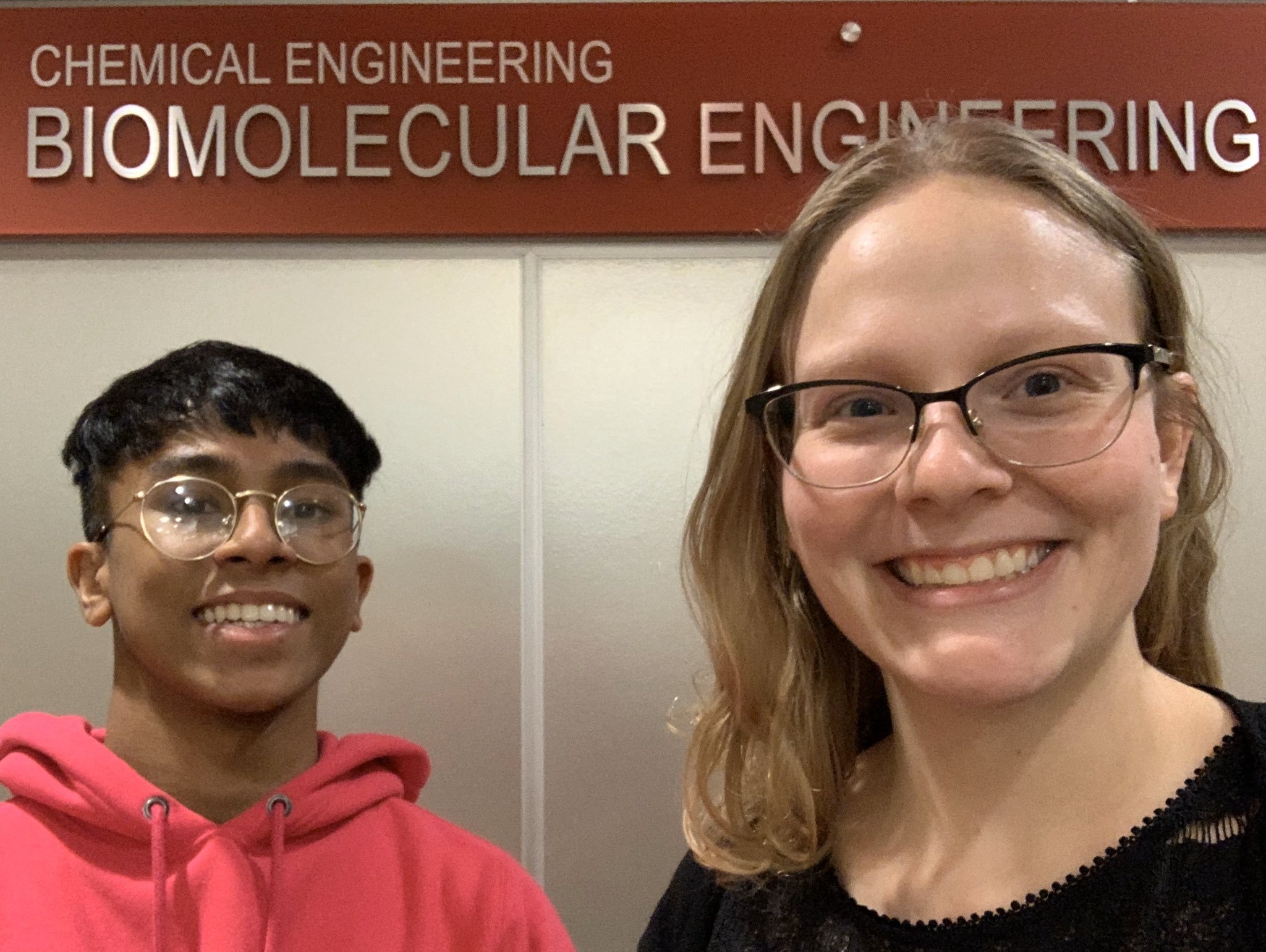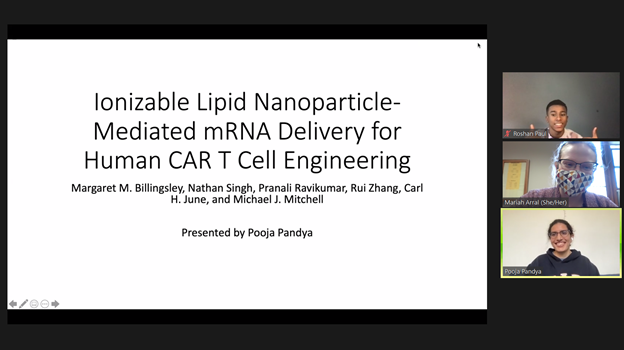Up, Down, and Adjacent Mentoring
Mariah views mentoring in an up, down, and adjacent manner. In other words, mentoring can be given by someone who is a peer, has seniority, or has less experience than you. This philosophy is something Mariah teaches her mentees, because “We all have something we can learn from each other.” Mariah was invited to give a talk during a professional development seminar series on the topic of up, down, and adjacent mentoring in 2021.
Mariah had the wonderful opportunity to conduct research during her undergraduate studies. She attributes some of her success to the mentorship she has received. During her Ph.D. studies, Mariah dedicated time to mentoring students. This is important to Mariah as she wants to ensure many students have the chance to participate in research opportunities.
During her academic career, Mariah has mentored six undergraduate students, one master’s student, and four Ph.D. students. Her mentees have gone on to pursue their own Ph.D. research careers or entered industry. Mariah is extremely proud of their accomplishments.
Mariah holds that mentoring does not end once a student leaves the lab space. When she takes a student on, it is for the remainder of their career. Whether it be a letter of recommendation or a discussion on their next career direction, Mariah is there for her mentees.
Scientific Communication
Scientific Communication is one of the most essential skills for young scientists to develop. Communicating science effectively is crucial for disseminating scientific knowledge and educating non-scientific audiences. Mariah is dedicated to teaching her mentees about scientific communication. During the pandemic, she hosted bi-weekly meetings where students took turns presenting journal articles. Together with students, they talked about the research papers and how to improve their communication.
Outside of mentoring her undergraduate researchers, Mariah has also led the development of a workshop on scientific communication for the Controlled Release Society Annual Meeting as a member of the Young Scientist Committee.
Creating a First-Year Mentoring Program
When Mariah moved to Pittsburgh to start her Ph.D. studies, she knew no one. As someone who came from a low socioeconomic background and has disabilities, Mariah had to navigate the unwritten syllabus that comes with being the first in her family to pursue doctoral studies. Mariah recognized that this is a struggle that other students must face, and when she was the President of the Chemical Engineering Graduate Student Association (ChEGSA), she started a 1st year mentoring program. This program matched incoming students with upperclassmen to help them adjust to graduate student life, advisor selection, and the qualifying exam process. This program continues on even after she has graduated.
Mentoring Disabled Students
Mariah also acts as a mentor to other disabled students who are interested in applying to graduate school. If you would like to reach out to Mariah about the application process please go to the contact page!




